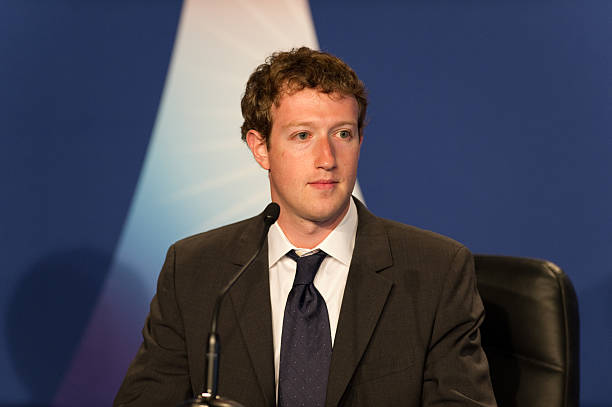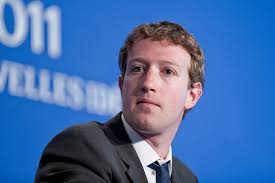Mark Zuckerberg : The Visionary Behind Facebook and the Metaverse

You May Like : Donald Trump Life’s Info And Facts
Introduction of Mark Zuckerberg :
Mark Zuckerberg was born on May 14, 1984, in White Plains, New York. Raised in nearby Dobbs Ferry, he showed an early interest in computers and programming. His father, Edward Zuckerberg, a dentist, taught him Atari BASIC programming at home. By the age of 12, Zuckerberg had created a messaging program called “ZuckNet” for his family’s dental practice.
While attending Phillips Exeter Academy, a prestigious preparatory school, his skills in programming continued to grow. During this time, he developed music and communication software, including a music player called Synapse that used artificial intelligence to suggest songs. This innovative project attracted the attention of major technology companies like Microsoft and AOL. However, instead of accepting job offers, Zuckerberg chose to pursue higher education at Harvard University.
The Birth of Facebook by Mark Zuckerberg
In 2002, Zuckerberg enrolled at Harvard University to study psychology and computer science. Although his coursework was demanding, he devoted significant time to programming projects. In 2003, he created “Facemash,” a website that allowed students to rank their peers’ attractiveness. Despite its popularity, the project faced ethical and privacy concerns, leading to its shutdown by the university.
Undeterred, Zuckerberg continued developing new ideas. In February 2004, alongside his roommates Eduardo Saverin, Andrew McCollum, Dustin Moskovitz, and Chris Hughes, he launched “TheFacebook.” Initially intended as a social networking site for Harvard students, its rapid success led to expansion across other Ivy League schools and eventually, universities worldwide.
By the end of 2004, Facebook had attracted over one million users. Recognizing the platform’s potential, Zuckerberg dropped out of Harvard in 2005 to focus entirely on building Facebook. That same year, the company secured its first major investment of $12.7 million from Accel Partners, which fueled further growth.

Facebook’s Meteoric Rise
Over the next few years, Facebook evolved from a university social network to a global phenomenon. In 2006, the platform opened its doors to the public, allowing anyone over the age of 13 with a valid email address to join. This strategic decision accelerated user growth, making Facebook a household name.
Zuckerberg’s vision for Facebook extended beyond connecting friends. The introduction of the News Feed in 2006 revolutionized the way users consumed information, while the launch of the Facebook Platform in 2007 allowed third-party developers to create applications and services within the ecosystem. These innovations cemented Facebook’s place at the forefront of social networking.
In 2012, Facebook went public with a record-breaking initial public offering (IPO), raising $16 billion and giving the company a valuation of over $100 billion. Despite early skepticism about its long-term profitability, Facebook’s revenue surged, driven by targeted advertising and data analytics.
The Shift to Meta and the Future of the Metaverse
By the 2020s, Zuckerberg’s ambitions expanded beyond social networking. In October 2021, he announced that Facebook would rebrand itself as Meta Platforms, Inc., signaling a shift toward building the “metaverse” – an immersive digital world where people can work, socialize, and play using virtual and augmented reality.
Under his leadership, Meta invested billions in developing metaverse-related technologies, including advanced VR headsets through its subsidiary, Oculus. This strategic pivot aimed to position the company at the forefront of the next digital revolution, despite concerns about privacy, misinformation, and the ethical implications of virtual environments.
Leadership Style and Controversies about Mark Zuckerberg
Zuckerberg is known for his data-driven, analytical approach to leadership. He fosters a corporate culture of innovation and encourages bold, risk-taking ideas. However, his tenure has not been without controversy. Facebook has faced intense scrutiny over issues like user privacy, data breaches, and the spread of misinformation.
One of the most significant challenges came in 2018, when the Cambridge Analytica scandal revealed that the personal data of millions of users had been improperly harvested. This breach prompted global investigations, multiple congressional hearings, and increased calls for stronger data protection regulations.
Despite these setbacks, Zuckerberg has remained committed to advancing technology while addressing public concerns. His philosophy of “moving fast and breaking things” has evolved into a more cautious, measured approach as Meta navigates the complexities of a rapidly changing digital landscape.
Philanthropy and Personal Life of Mark Zuckerberg
Beyond technology, Mark Zuckerberg and his wife, Priscilla Chan, are known for their philanthropic efforts. In 2015, they founded the Chan Zuckerberg Initiative (CZI) to promote education, scientific research, and social equity. They pledged to donate 99% of their Facebook shares to charitable causes over their lifetimes, reflecting their commitment to societal progress.
Zuckerberg balances his demanding career with family life. He and Priscilla have three children and maintain a relatively private personal life despite their public profiles. Known for his minimalist lifestyle, Zuckerberg often wears the same gray t-shirt and jeans to reduce decision fatigue.
Legacy and Future Outlook
Mark Zuckerberg’s impact on the digital age is profound. Facebook transformed how people connect and communicate globally, while Meta’s push into the metaverse may shape the future of digital interaction. His journey from a Harvard dorm room to leading a tech empire underscores his vision, resilience, and ability to adapt.
As the digital landscape continues to evolve, Zuckerberg remains at the forefront of innovation. Whether his ambitious metaverse vision will become a reality remains uncertain, but his influence on technology and society is undeniable. Through Meta, he continues to push the boundaries of what is possible in a connected world.
Sundar Pichai: The Visionary Leading Google and Alphabet
[…] You May Like: Mark Zuckerberg Life Journey : The CEO OF META […]